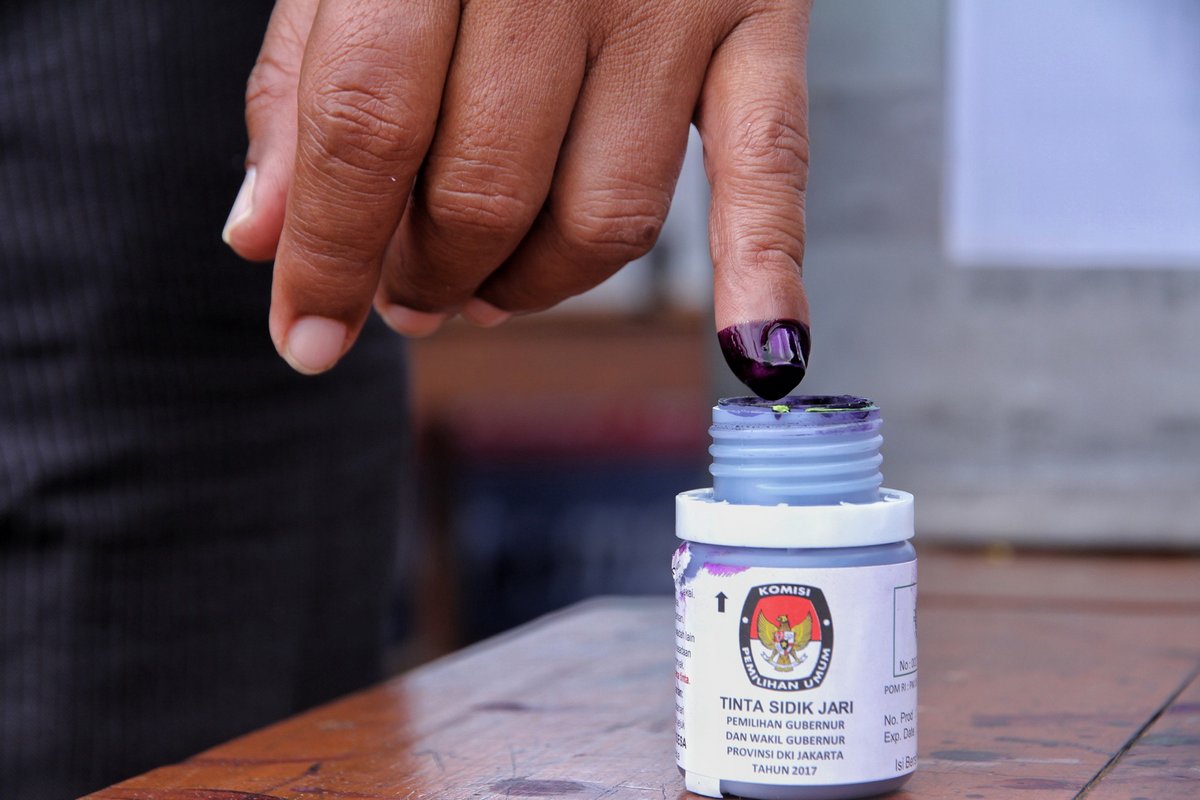Tens of millions of Indonesians will vote in presidential and parliamentary elections this week after campaigns focused on the economy, but with political Islam looming ever larger in the world’s biggest Muslim-majority nation.
President Joko Widodo, a former furniture salesman who launched his political career as a small-city mayor, is standing for re-election in a contest with ex-general Prabowo Subianto, whom he narrowly defeated in 2014.
Most opinion polls give Widodo a double-digit lead, but the opposition has disputed survey findings and claimed it had uncovered data irregularities affecting millions on the electoral rolls
The president’s opponents as vowed to take legal action or use “people power” if its complaints were not resolved.
Some analysts say an unexpected win for the challenger would probably cause a brief slump in Indonesian markets, while a very close race could elevate the risk of a disputed vote.
While most polls have put the president ahead, the lead could not be taken for granted, a senior government official said.
“Absolutely everybody is flying blind because we don’t know how far the opinion polls can be respected,” added the official, who spoke on condition of anonymity.
Mr. Widodo ended his six-month campaign with a mass rally at Jakarta’s main stadium at the weekend, where festive crowds overflowed into a surrounding park and streets.
That was a stark contrast to his opponent, who has repeatedly warned Indonesia is on the verge of collapse.
Mr. Prabowo, as he is usually known, held a similarly big rally the previous weekend where supporters, many dressed in Islamic robes, held a mass prayer before a fiery speech about how Indonesia was being pillaged by foreigners and the elite.

Nearly 500,000 police and military will fan out across the vast archipelago to safeguard the vote.
More than 192 million people will also vote in national and regional legislative elections, being contested by more than 245,000 candidates, in what is being described as the world’s biggest single-day election.
Overseas voting is already underway, with thousands lining up outside Indonesian missions in Singapore and Australia.
On Wednesday, polling stations will open at 7 am (10 pm GMT on Tuesday) in eastern Indonesia and close at 1 pm (6 am GMT) on the western side of the country.
Voters will manually punch five separate paper ballots for president and vice-president, and legislative candidates.
Unofficial “quick counts”, based on vote samples from polling stations, will be released hours after polling ends and the winning presidential candidate is expected to be apparent by late Wednesday.
The General Election Commission is expected to announce an official result in May.
Candidates have 72 hours after the official result to complain to the Constitutional Court. A nine-judge panel has 14 days to reach a decision, which cannot be appealed.
 Alghadeer TV Alghadeer TV
Alghadeer TV Alghadeer TV
